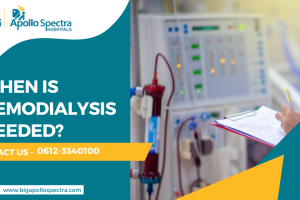The natural aging process brings with it numerous physical changes including a progressive reduction in kidney function.
People over 40 experience an average yearly decline of 1% in kidney filtration ability. This clearly makes older adults more susceptible to kidney problems.
As you might already know, kidneys are essential for waste filtration while this organ is also integral for maintaining electrolyte balance and blood pressure.
That’s why seniors must prioritize kidney health since impaired kidney function can have severe effects on their health and ability to live independently.
So, staying well-informed about aging-related kidney function changes will help you in detecting health issues early on and take treatment. This also makes it possible to prevent hospitalization altogether and maintain quality of life.
Symptoms of Poor Kidney Function in the Elderly – 6 Warning Signs
Elderly people are prone to notice certain symptoms when they are suffering from a kidney issue. Moreover, it is advisable to seek professional guidance from a kidney specialist in Patna when you identify troubling symptoms in yourself or an elderly loved one.
Timely diagnosis and customized healthcare solutions are actually the only useful ways to get rid of kidney issues and guarantee long-term solutions.
The following warning signs are some cues that indicate kidney problems and that you need to seek a kidney doctor.
1. Swelling and Fluid Retention
Fluid retention known as edema is among the early warning signs of kidney disease.
When kidneys cannot eliminate excess body fluids properly, the lower extremities such as ankles, feet, and legs are more likely to experience swelling, which becomes more noticeable later in the day.
In advanced cases of edema, it can even spread to multiple body areas including hands, face, and abdomen. Seniors may experience shoes fit more tightly and indented sock marks on their legs along with morning eye puffiness. These are some telltale signs of kidney issues in elderly people.
Also, you are likely to experience even worse symptoms after eating high sodium diets or during hot weather conditions.
Watch out for unexpected weight gain that happens without any changes in your dietary habits. This might suggest serious fluid retention which needs immediate medical assessment from a specialist.
2. Fatigue and Weakness
Older adults who experience ongoing fatigue that remains persistent even after proper rest may be showing the first sign of kidney problems.
This exhaustion stems from multiple kidney-related factors: Reduced production of erythropoietin leading to anemia while waste products accumulate in the blood. Electrolyte imbalances also play a role by disrupting the muscle function and energy levels in men and women.
As a result, elderly people may find previously easy tasks difficult to complete while needing more breaks throughout the day or feeling persistently exhausted even after sleeping well.
Also, family members may observe their senior loved ones losing interest in activities they once enjoyed along with taking more frequent naps.
3. Changes in Urination Patterns
Kidneys not working properly in elderly typically show clear changes in urination patterns. Seniors may encounter increased urination at night known as nocturia or urine that appears foamy or bubbly because of protein presence.
Changes in urine colour from pale straw to dark amber is also a sign, which is often dismissed as something temporary.
Moreover, certain people observe a reduction in urination volume despite having typical fluid consumption while others show increased urination frequency.
Seeing blood in urine is one symptom that needs urgent medical attention from a kidney specialist. This is, in fact, one of those signs that you shouldn’t be taking lightly at all.
The reason behind all these urinary shifts is declining kidney function because these organs struggle to filter waste properly.
What’s most concerning is that older adults frequently mistake these warning signs for typical aging which leads to delayed treatment and the risk of more complications.
4. Shortness of Breath
The buildup of fluid in the lungs can occur when kidney function declines dramatically. This also leads to shortness of breath.
During initial stages, patients experience shortness of breath only when exercising. However, this symptom progresses to occur during rest or while lying down too as kidney function deteriorates.
Elderly patients may also develop a persistent nighttime dry cough due to fluid accumulation in their lungs. Patients with breathing difficulties might also show decreased ability to exercise or a need to rest while climbing stairs.
As a matter of fact, breathing issues linked to kidney problems tend to become worse when patients consume fluids but show some improvement when they sit upright.
Because this symptom often indicates serious kidney dysfunction, you should immediately see a kidney doctor to alleviate worries.
5. Cognitive Changes and Sleep Problems
Symptoms of kidney not functioning properly include neurological issues. Most people cannot think of any relation between these two conditions, but there’s actually a perfectly logical explanation for this.
As kidneys fail to function correctly, waste products build up in the blood which leads to neurological effects that impact brain function.
Family members may be able to identify confusion or changes in personality before the kidney patients become aware of their own concentration difficulties and memory problems.
Sleep disruptions are also common. You might experience insomnia, sleep apnea, restless leg syndrome and excessive daytime sleepiness in spite of sufficient nighttime sleep.
Without kidney function evaluation, it’s easy to misdiagnose patients because cognitive and sleep changes can resemble symptoms of dementia and other neurological disorders as well.
Disruptions in the sleep-wake cycle worsen fatigue and cognitive problems even further. The intensity of these symptoms tends to increase as kidney function deteriorates.
6. Taste Changes and Decreased Appetite
Both elderly men and women with kidney disease frequently report changes in taste and reduced appetite as symptoms.
The accumulation of waste products in the bloodstream causes persistent food taste changes which often result in a metallic flavour regardless of the consumed items.
Seniors often discover that foods they previously enjoyed now lack appeal or taste different to them.
Not to mention, persistent nausea together with taste alteration usually results in patients eating less food which means they will likely also experience weight loss.
As a result, nutritional status rapidly worsens with less food intake. Muscle wasting and weakness also progresses as time goes.
Family members may observe more food waste along with reduced portion sizes and new complaints about food preparation techniques that never existed.
Risk Factors and Causes
Knowing which factors increase older adults’ risk for kidney problems will help in formulating preventive measures and seek prompt treatment. Here are five significant risk factors:
1. Chronic Diseases
Among older adults, diabetes and hypertension stand as the principal contributors to kidney damage. The delicate blood vessels in the kidneys suffer damage from these conditions which gradually leads to impaired kidney filtration ability.
Also, heart disease, liver disorders, and systemic inflammation contribute to kidney damage by diminishing blood flow or enhancing inflammatory processes.
Extended duration of these conditions leads to more significant kidney damage when they remain poorly managed. So, the first step to preserving kidney function in older adults is through proper management of these underlying health conditions.
2. Medication Use
A variety of medications that are frequently prescribed or available over-the-counter can damage kidney function when used for extended periods.
Regular use of NSAIDs including ibuprofen and naproxen as well as certain antibiotics, proton pump inhibitors, and specific diuretics can lead to kidney damage.
Simultaneous use of multiple medications leads to a significant rise in risk.
As people age, their bodies process drugs differently which causes medications to stay active in their systems for extended periods leading to potential build-up of harmful effects.
That’s why it is actually essential for seniors to keep their medication list updated. This will help most healthcare providers check for potential interactions of your medications with kidney function.
3. Dehydration and Poor Nutrition
The reduced sensation of thirst that is natural with aging often results in inadequate fluid intake which becomes dangerous for elderly kidneys since it may lead to chronic dehydration.
Moreover, as kidney support decreases, the organs must exert more effort to function while more toxins build up in the body, elevating infection risk.
Excessive consumption of protein and high sodium foods combined with insufficient vitamin D intake puts additional strain on kidney function.
Note that some seniors deliberately decrease their fluid consumption to control incontinence or nighttime urination, yet this practice may lead to unintended kidney damage.
As people age, their kidneys naturally lose reserve capacity, which makes proper hydration and balanced nutrition even more critical.
4. Urinary Tract Issues
Weakened immune systems and bodily structural changes make older adults more susceptible to urinary tract infections.
Untreated infections or frequent recurrences of infections can move to the kidneys and result in permanent damage.
Urinary retention from enlarged prostate in men and pelvic organ prolapse in women leads to kidney pressure buildup that also raises infection risk.
In fact, any kind of normal urine flow obstruction poses a threat to kidney functionality. That’s exactly the reason why it is recommended for seniors to take regular urological exams, especially if they have previously experienced urinary problems.
5. Genetic Predisposition and Age-Related Changes
Genetic predispositions can cause certain individuals to experience kidney function deterioration at a rate faster than normal age-related decline. A family background with kidney disease incidents leads to a substantial increase in personal risk as well.
The normal aging process leads to a reduction in kidney size along with a decrease in filtration rate and diminished ability to concentrate urine and handle dehydration.
Plus, seniors become more susceptible to health problems and drug side effects because normal kidney changes lead to reduced functional capacity.
Thus, by knowing a patient’s personal family history and age-related risks, kidney specialists can develop personalized monitoring plans and prevention strategies for each individual’s risk profile.
Preventive Measures or Lifestyle Adjustments
Older adults can prevent further kidney damage through lifestyle changes that improve kidney function in old age and also delay the advancement of existing damage.
People should drink between 6-8 glasses of water each day to maintain proper hydration unless a doctor advises otherwise.
Consuming kidney-friendly foods low in sodium and processed ingredients with limited protein intake also helps. Fresh produce including fruits and vegetables along with whole grains helps maintain healthy kidney function.
When it comes down to physical activity, regular moderate exercise enhances circulation to your kidney while managing blood pressure and blood sugar levels.
Moreover, medication-related kidney damage can be easily prevented through careful medication management and regular medicine reviews by your doctor. Simple blood and urine screenings are enough to detect issues early on and take timely steps before the disease advances.
When to Seek Medical Help?
Early recognition of signs of kidneys shutting down in elderly makes life-saving immediate medical actions possible.
If you experience symptoms such as reduced urination output, debilitating tiredness, constant vomiting, mental confusion, chest discomfort, or substantial swelling, you should get emergency medical evaluation because these signs could signify serious kidney problems that need quick treatment.
Also seek timely medical assessment for ongoing but less severe symptoms, such as altered urination patterns, persistent fatigue without cause, or mild swelling which persists even after you have taken proper rest.
A medical examination for possible kidney issues follows a comprehensive protocol that includes taking a detailed medical history and performing a physical examination as well as blood tests to measure creatinine and BUN levels.
You can also expect a urinalysis and possibly ultrasound imaging studies. Doctors typically calculate the glomerular filtration rate (GFR) because it provides the most precise measurement of kidney function.
As a general rule, people over 60 should get yearly kidney function tests. Schedule tests especially if you have risk factors like diabetes, high blood pressure, or a family history of kidney disease.
Take Control of Your Kidney Health Today!
As people grow older, their kidney function decreases naturally, and that’s something most seniors should expect. Identifying warning signs enables early treatment which can substantially reduce disease progression and enhance results.
The survival duration for elderly patients with kidney function problems depends heavily on early detection and proper management since appropriate care allows many older adults to sustain good quality of life for an extended period of time.
To extend kidney function longevity, medical practitioners recommend routine screening together with lifestyle changes and immediate response to worrisome symptoms.
Big Apollo Spectra, the best super speciality hospital in Patna, delivers specialized services for complete nephrology care and expert kidney health management.
The medical team and kidney specialists at Big Apollo Spectra have extensive expertise in delivering thorough assessments alongside customized treatment solutions and continual support for kidney health issues.
Most elderly patients require ongoing care and diagnosis to avert serious kidney issues as well as maintain their quality of life.





